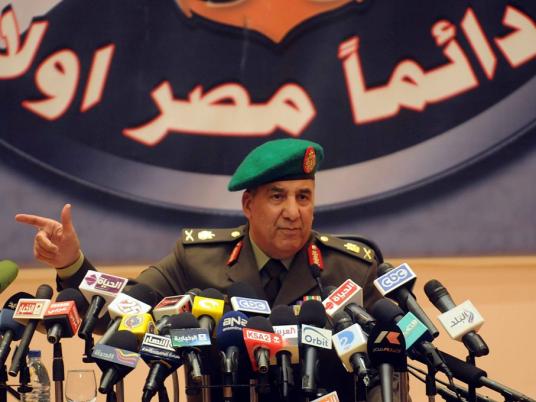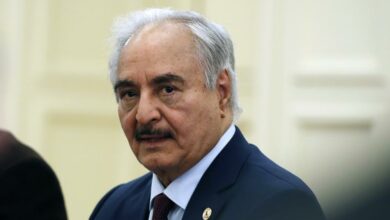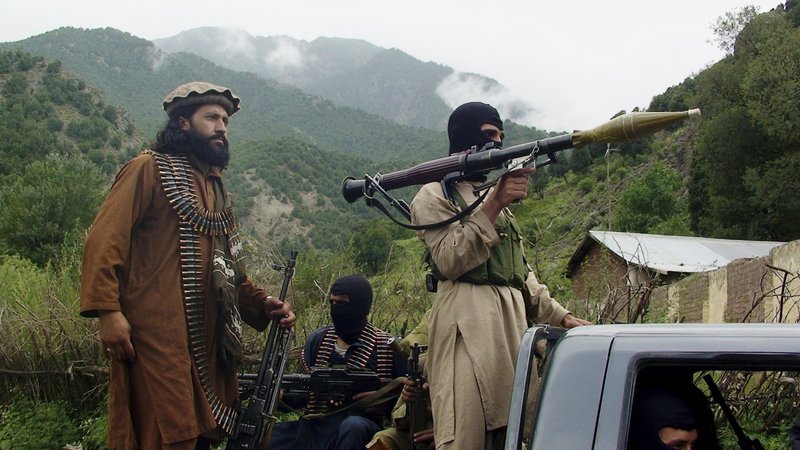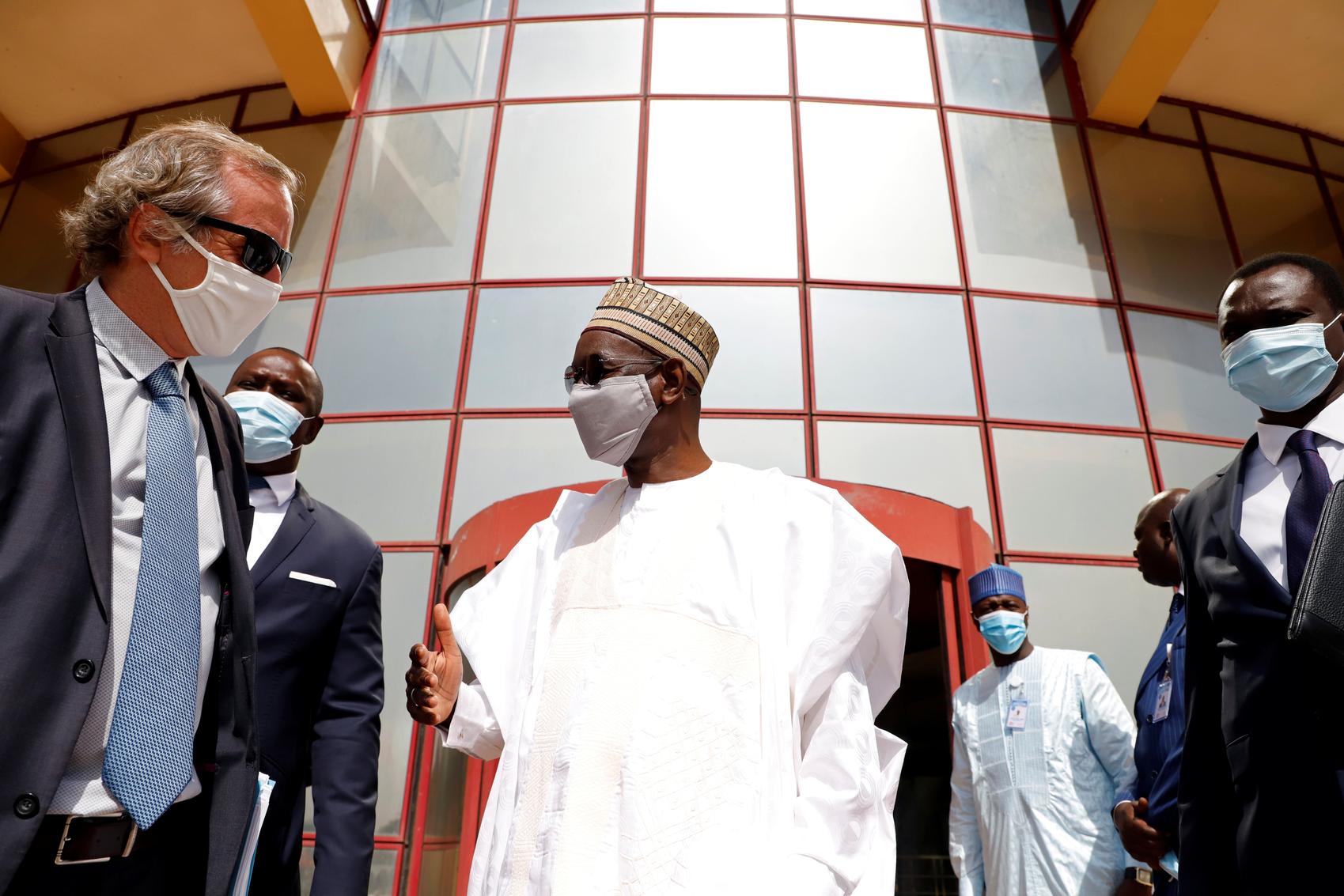
On the rooftop of the devastated Egyptian Scientific Institute, a handful of soldiers stood in mid-December in their camouflaged uniforms, hurling stones at hundreds of demonstrators rallying on Sheikh Rihan Street in downtown Cairo. The soldiers’ actions attested to an overwhelming grudge against demonstrators after three days of bloody clashes that left only protesters dead.
For their part, angry demonstrators responded by making hand gestures, hoping to have their revenge on the army personnel who had urinated on them and beaten and assaulted female protesters only a couple of days earlier. The standoff lasted for days, casting doubt on the professionalism of one of the region’s largest armies, the recipient of the second-largest amount of US military aid.
A month earlier, the military dealt with clashes that erupted on Mohamed Mahmoud Street in the same manner. While the riot police and demonstrators were consumed in a bloody confrontation that left at least 35 protesters dead, the generals appeared on television to apologize for the ongoing killings and promise to erect a field hospital near the battlefield, instead of ending the violence that lasted for almost five days.
During every incident, the generals reiterated that they serve as guardians of the revolution, meanwhile uprooting revolutionaries on the street, either by using excessive force, accusing them of thuggery or referring them to exceptional courts.
As self-contradictory as the generals may seem, the way they deal with clashes is nothing but a microcosm of their bewildering day-to-day tactics throughout the transitional period — actions that sometimes amount to sheer absurdity.
Even the nation’s most sophisticated and seasoned political scientists often fail to read the pulse of the Supreme Council of the Armed Forces (SCAF) or decipher their exact motives. While it seems clear that the long-term objective of Egypt’s generals is to keep their privileged status intact in post-Mubarak Egypt, their politics in handling the transition and in negotiating with political and revolutionary forces are failing to achieve even their own interests. “It is messy,” has become the catchphrase describing the generals’ policies.
Emerging from the shadows
This is the first time in decades that Egypt’s military elite has been exposed to the public. Only a few days before President Hosni Mubarak stepped down, Egyptians were ignorant of the SCAF’s make-up. Meanwhile, most ordinary citizens felt pride in their military, citing its victory over Israel in 1973 and its development projects. The generals were not spoken of. No media outlet could challenge or criticize the army, considered the force behind Egypt’s modernization in contemporary history.
Yet the year 2011 marked a drastic change in that pattern. By virtue of becoming Egypt’s actual rulers, many generals’ names and faces became well-known to the public. Meanwhile, the SCAF’s performance was placed in the limelight. The generals’ stumbling and faltering policies earned them ruthless criticism from the revolutionary forces, as well as from the media.
Almost a year after the end of President Hosni Mubarak’s rule, it has become crystal clear that Egypt’s generals are not interested in ruling directly, but seek to safeguard the legacy of a 59-year-old regime that ensures the military full political and economic independence. This independence was guaranteed in the past as Egypt’s former four presidents all came from the barracks. As unlikely as it may seem that the SCAF will openly back a military candidate for the presidency at this revolutionary juncture, the generals seek to instate a constitutional order that will not allow a civilian president or parliament to alter the old power relations. On many occasions, they have flirted publicly with the Turkish model, not of today, but of the 1980s and 1990s.
Such an arrangement cannot be established without a set of clauses in the new constitution that would maintain the secrecy of the military budget, give the generals the upper hand in declaring war, and allow them to interfere with civilian politics under the pretext of safeguarding democracy. Hence, what preoccupies the generals the most are the terms of their exit from the day-to-day politics.
But have the generals followed a path that can achieve this end? In short, they have not.
Missed opportunities
For many observers, it would have been much easier for the military to negotiate its status had it called for a constituent assembly to draft the constitution immediately after Mubarak stepped down. Back then, the army’s popularity was quite high, with the propaganda line that the generals had protected the revolution selling well. Plus, the generals’ hands were not yet tainted with Egyptian blood.
Yet the military chose a more complicated path, and for no clear reason. It backed a set of constitutional amendments that would entrust the newly-elected parliament with the task of electing the constituent assembly that will draft the new constitution. Back then, Islamists supported this path, a position that many interpreted as a sign of a military-Islamist alliance. Islamists were seen as the main beneficiaries of this plan since their well-embedded structures were expected, and rightly so, to guarantee them a sweeping victory in parliamentary elections.
But a few months later, the military sought to retract the initial plan after the power of the Islamists became visible, warning of an Islamist-dominated parliament that could design a theocracy. This is not to assume that the ascent of the Islamists came as a surprise. On the contrary, from day one, liberal forces warned that the path chosen would pave the way to an Islamist hegemony. Hence, the military’s retraction proved to be too late, quite unrealistic, and raised the specter of more political turmoil.
Poor timing
After the July protest dubbed by many pundits the Friday of Kandahar, in which Islamists took to Tahrir Square to demand implementation of Sharia law, the military tried to change the course of the transition. It backed a document with a set of constitutional principles that would achieve the following: secure the civil nature of the state and close off the avenue to the formation of a theocracy; grant the military full economic and political autonomy from elected bodies, i.e., the parliament would have no right to discuss the army’s budget; and set eligibility conditions for the constituent assembly that will draft the constitution. This document was revealed only a few weeks before the parliamentary polls opened, in the hope that all political factions would endorse it before the new parliament was elected. Yet Islamists, who were confident that the poll results would enhance their political position, refused to back this initiative. The Muslim Brotherhood mobilized the street once again on 18 November to thwart the military initiative, sending a clear message that the military cannot go back on its promises that easily. The SCAF backed off briefly.
As soon as the first round of the parliamentary elections showed that the Muslim Brotherhood and the Salafis had secured almospercent of the votes, Egypt’s generals sought to send assurances to liberals and the West by announcing the formation of an advisory council that would design a set of eligibility conditions for the members of the constituent assembly, meaning that Islamists will not monopolize the process of drafting the constitution.
From a merely tactical perspective, this initiative could not have come at a worse moment. The generals revealed their intention to tread on the toes of the democratically elected parliament and interfere with the process of writing the constitution at a moment when Islamists were in an unprecedentedly strong position. They have already received the backing of the majority of the population. The Brotherhood has boycotted the advisory council and reiterated the position of 18 November.
It seems that the constitution saga will continue for quite sometime, raising a number of critical questions. First, is there an Islamist-military collision over the constitution in the making? Second, if the SCAF was that keen to secure the civil nature of the new constitution and ensure its prestigious position in the new order, why did it not follow a different path from the beginning, instead of proceeding clumsily towards a confrontation with Islamists at a moment when the latter are rising as the legitimate representatives of the majority?
Even if the Islamists get co-opted or reach a power-sharing agreement with the generals, would that sew up all the unfinished business? Would the democratic revolutionary bloc that has recently established itself as a force to be reckoned with on the street live with an arrangement that excludes them from the equation? Or will more resistance be seen?
Only time can answer these questions.




